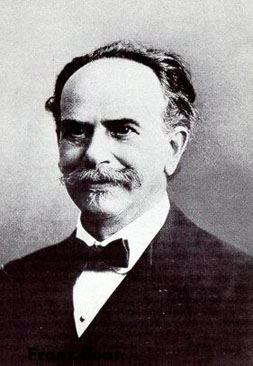Anthoropological Linguistics
jueves, 17 de noviembre de 2011
Have you ever listen about Linguistics and Anthropology?
Linguistics and Anthropology
This video was created as part of the digital storytelling assignment for "ANT 2000 - General Anthropology" at the University of Florida during the autumn semester of 2010. For this assignment, students answered one of two questions. If their major was anthropology, they created a video about their favorite aspect of anthropology. If there major was not anthropology, they created a video about the intersection between anthropology and their specific discipline.
http://www.youtube.com/watch?v=R8Pq2cTtzio&feature=related
Edward Sapir
Edward Sapir (January 26, 1884 – February 4, 1939) was an American anthropologist-linguist, a leader in American structural linguistics. He is arguably the most influential figure in American linguistics. His anthropological approach, influenced by Franz Boas, began with his research on Native Americans in an attempt to document their languages before they disappeared. This led to his interest in the inter-connections among language, thinking, and culture. Work with Benjamin Whorf in this area led to what became known as the "Sapir-Whorf hypothesis" and the development of the field of ethnolinguistics. Sapir's belief that language shapes prediction and influences behavior led him to research the nature of an international auxiliary language. In order to function as a harmonious global society, effective communication must be achieved, and Sapir's work was instrumental in developing the understanding of how people may communicate without misunderstanding.
Franz Boas
 Born: 9-Jul-1858 Born: 9-Jul-1858Birthplace: Minden, Germany Died: 22-Dec-1942 Location of death: New York City Cause of death: unspecified Remains: Buried, Dale Cemetery, Ossining, NY Gender: Male Religion: Jewish Race or Ethnicity: White Sexual orientation: Straight Occupation: Anthropologist Nationality: United States Executive summary: Father of American Anthropology Franz Boas is considered both the founder of modern anthropology as well as the father of American Anthropology. It was Boas who gave modern anthropology its rigorous scientific methodology, patterned after the natural sciences, and it was Boas who originated the notion of "culture" as learned behaviors. His emphasis on research first, followed by generalizations, stood in marked contrast to the British school of anthropology which emphasized the creation of grand theories (which were only after tested through field work). As a teacher, principally at Columbia University, he served as mentor to many of the top names in American anthropology, including such luminaries as Alfred Kroeber, Ruth Benedict,Margaret Mead, Robert Lowie, and Edward Sapir. Many of these went on to found, or profoundly influence, departments of anthropology at other universities. Boas further extended his influence through such important works as The Mind of Primitive Man (1911), Anthropology and Modern Life (1928), and Kwakiutl Ethnography (1966). |
Definition
- Linguistic anthropology as practiced today . . . is the understanding of the crucial role played by language (and other semiotic resources) in the constitution of society and its cultural representations. To pursue this goal, linguistic anthropologists have ventured into the study of everyday encounters, language socialization, ritual and political events, scientific disousre, verbal art, language contact and language shift, literacy events, and media."
- "Unlike linguistics, [linguistic] anthropologists have never considered language in isolation from social life but have insisted on its interdependence with cultural and social structures. In this sense, their technical linguistic analyses are means to an end, data from which it is possible to make inferences about larger anthropological issues. Hence, under the . . . label 'language and culture,' anthropologists study topics such as the relations between world views, grammatical categories and semantic fields, the influence of speech on socialization and personal relationships, and the interaction of linguistic and social communities. . . . [T]he relation between languages and social groups cannot be taken for granted, but is a problem which must be ethnographically investigated."
Suscribirse a:
Comentarios (Atom)
